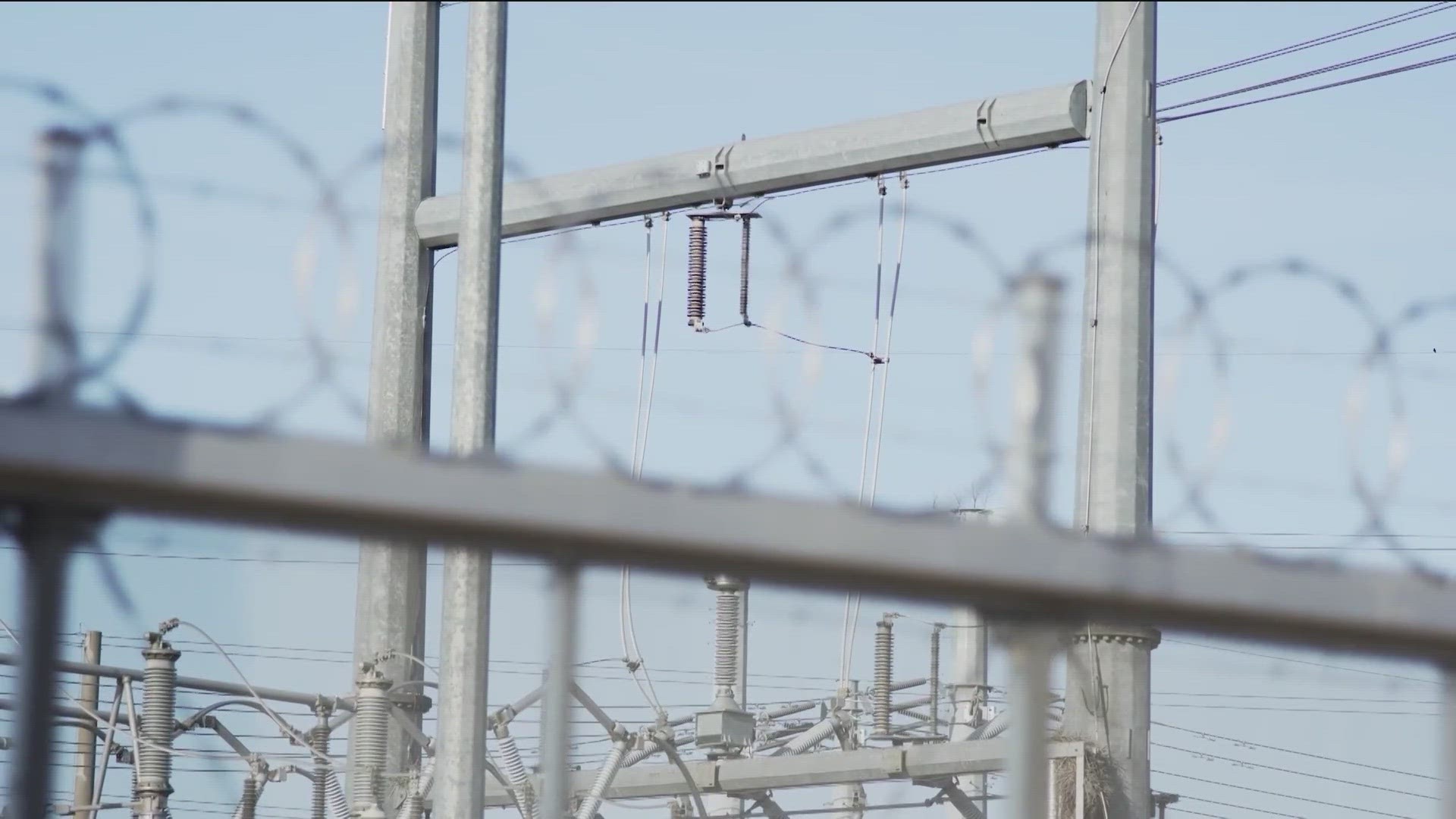AUSTIN, Texas — The power grid manager for the majority of Texas will rework its reliability analysis heading into the winter season.
Even though Texas power regulators say they’ve made a lot of progress on enhancing our electric grid, the power grid manager’s latest simulations show we could have blackouts every few years if there is a major winter storm similar to December 2022 or February 2021.
The Electric Reliability Council of Texas (ERCOT) manages the power grid covering a majority of the state.
In Jan. 2023, the Public Utility Commission ordered ERCOT to create a reliability standard. Then, in June, ERCOT released preliminary results of their study to create a standard.
Over the following months, ERCOT and PUC continued the work to define the reliability standard.
“Given that it is an evolving process with engagement from the Commission and the stakeholder community, I would like to ask ERCOT to compile all of the inputs and assumptions that are included in the current Strategic Energy & Risk Valuation Model (SERVM) model runs into a simple to read table,” PUC Commissioner Will McAdams wrote in a memo Sept. 27.
ERCOT responded on Oct. 10 with a spreadsheet and answers to nine additional questions posed by the Commission.
On Oct. 26, PUC Commission staff proposed additions to the reliability standard study including using a 42-year historical weather data estimate and adding winter weatherization efforts made since February 2021.
Leading up to the Nov. 30 PUC Open Meeting, ERCOT filed a response and correction.
“Overall, it seems our weatherization standards are making a significant impact or at least an impact,” McAdams said in the Nov. 30 meeting.
McAdams questioned Woody Rickerson, ERCOT's senior vice president and chief operating officer, about their results.
“One number that jumps out to me, sir, on the 2023 with weatherization results. You think we have a .31 loss of load expectation for 23. And question: am I understanding it correctly or do you think we’re on a path— is that the path you think we’re on? And does that imply we’re going to have outages once every three years?” McAdams asked Rickerson in the meeting.
Load loss, according to the Department of Energy’s U.S. Energy Information Administration (EIA), is a continuous outage of three hours or longer.
“Under simulated 2023 with weatherization results for frequency, if you compare that to the 48 scenario results, that'll be a frequency of three (years),” Rickerson said.
“It seems that if an outage occurs, the chances or chance of a high magnitude and high duration event is fairly unlikely,” McAdams said, looking at the documents filed.
McAdams asked ERCOT why transmission constraints weren't included in the 2023 scenarios.
“The model we’re running doesn’t include the transmission system,” Rickerson said.
Last month, the KVUE Defenders reported how power can become constrained on the grid. Power being produced in one area of the state cannot get to the demand in another part. Over the summer, ERCOT told wind farm companies to stop or reduce their production even though demand was high.
“The primary reason that ERCOT would ever curtail flow across the transmission line is if there's a concern of overloading it,” Vegas told KVUE at the time.
McAdams requested Rickerson to run a scenario using conservative operations. Those operations, according to the Independent Market Monitor (IMM), increased energy cost by about $8 billion in three months.
For their next round of calculations, ERCOT will also use the 2022 average price for natural gas (5.8 $/MMBtu). Currently, the price used in the simulation was for an average price over a 42-year average (3.5 $/MMBtu).
No timeline is set on when the updated simulation will be released. PUC’s next open meeting is set for Dec. 14.

